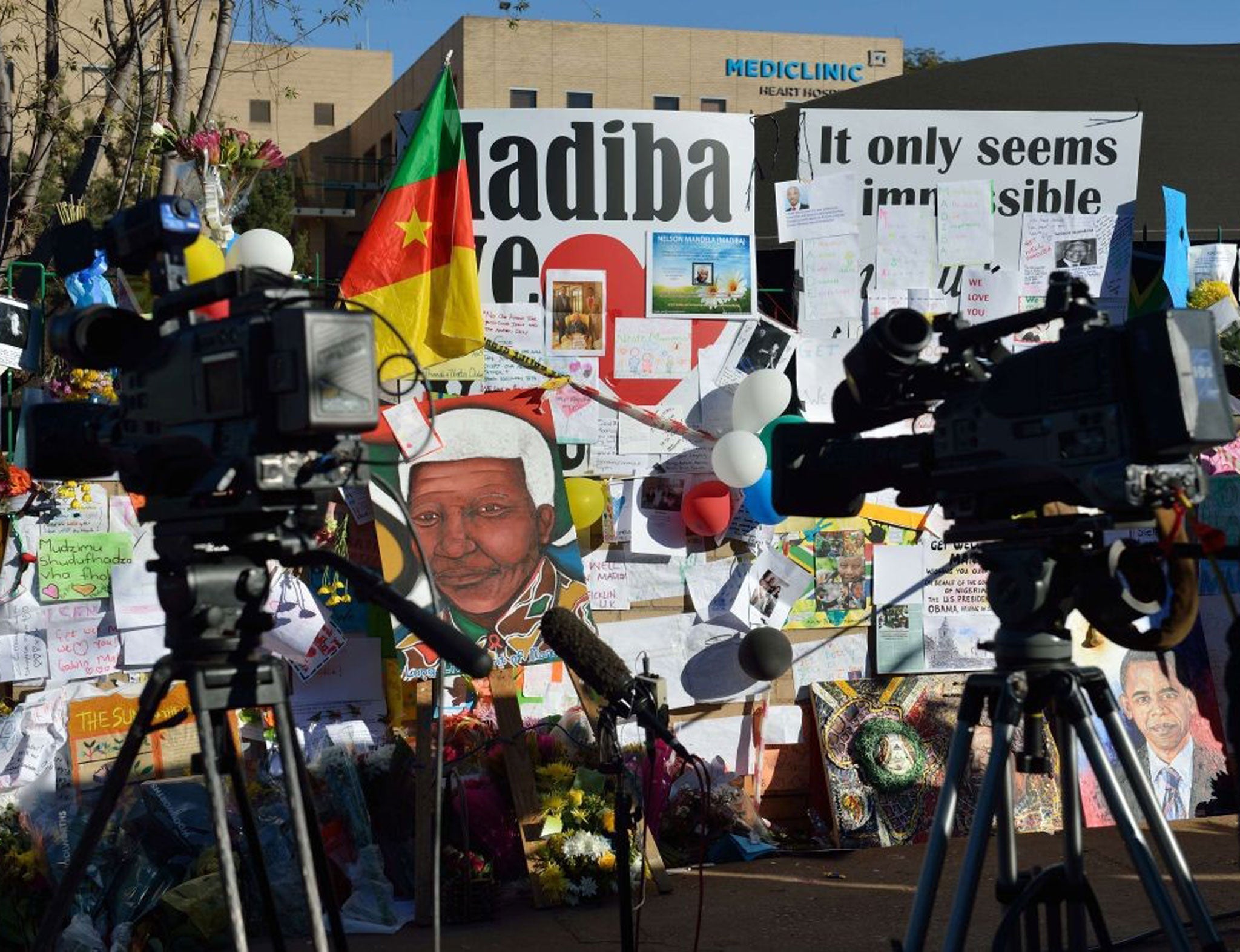Mandela coverage: a fine line between racism and ethics?
Mandela’s daughter said there is a racist element to the way her father’s health is being covered - so at the very least people should listen

Your support helps us to tell the story
From reproductive rights to climate change to Big Tech, The Independent is on the ground when the story is developing. Whether it's investigating the financials of Elon Musk's pro-Trump PAC or producing our latest documentary, 'The A Word', which shines a light on the American women fighting for reproductive rights, we know how important it is to parse out the facts from the messaging.
At such a critical moment in US history, we need reporters on the ground. Your donation allows us to keep sending journalists to speak to both sides of the story.
The Independent is trusted by Americans across the entire political spectrum. And unlike many other quality news outlets, we choose not to lock Americans out of our reporting and analysis with paywalls. We believe quality journalism should be available to everyone, paid for by those who can afford it.
Your support makes all the difference.In an interview on South African Broadcast Television, SABC last Thursday, Makaziwe Mandela, Nelson Mandela’s daughter, accused foreign media of behaving badly in order to get the latest on her father's situation.
“It’s truly like vultures,” she said, “waiting when a lion has devoured the buffalo, waiting there, you know, for the last carcasses. That’s the image that we have as a family. And we don’t mind the interest, but I just think it has gone overboard."
She also stated that there was a “racist element” to the way that foreign media are crossing boundaries. "I don’t want to say this, but I’m going to say it. There is sort of a racist element with many of the foreign media where they just cross boundaries.”
Mandela’s eldest daughter went on to compare the situation to Margaret Thatcher's passing, querying why we didn't see a similar kind of media frenzy in Thatcher's case. "Is it because we are an African country that people just feel they can’t respect any laws of this country, that they can violate everything in the book? I just think it’s in bad taste. It’s crass. […] Tata deserves his privacy […] If people say that they really care about Nelson Mandela, then they should respect that."
Immediate reactions to her interview posted on Youtube were strong. While some commenters expressed sympathy with her grief, most were impatient and dismissive. (Mazikiwe) Mandela has a “personal vendetta” against international news organisations, one commenter wrote. Another said, “This is not racist, this is human nature when an icon prepares to leave this (sic) us.” Others were less polite, referring to her as a “crazy and “stupid” woman whose father “is dying of grief for having such idiotic children.”
While the racism accusation might be swiping and confrontational, it should not be casually dismissed as tomfoolery. Racism is not simply the institutional oppression or condescending attitudes towards people of colour but also the unhesitating disregard of their feelings about race.
We don’t have to all agree, but if the daughter of Africa’s, if not the world’s, most revered anti-racism activist in modern times raises a concern that has to do with race, then at the very least people should listen, perhaps even engage in a constructive dialogue.
It is understandable that international media are taking every possible measure to keep their audiences up to date with Mandela’s critical condition. After all, Mandela is not only an iconic South African leader but an important world leader and a symbol of the end of an era that the whole world looks unfavourably upon.
And it is not racist, for instance, to rent a balcony that overlooks the hospital where Nelson Mandela is staying, as the Associated Press have done, or for reporters to put up tents and camper vans outside it, but it is arguably unethical.
As the world prepares to mourn a figure whose very life is a testimony to racial tension, one who lives in a country where racial division is still widespread, it may, however, turn out that matters of ethics and race are not as separate as they may seem on the surface.
Join our commenting forum
Join thought-provoking conversations, follow other Independent readers and see their replies
Comments